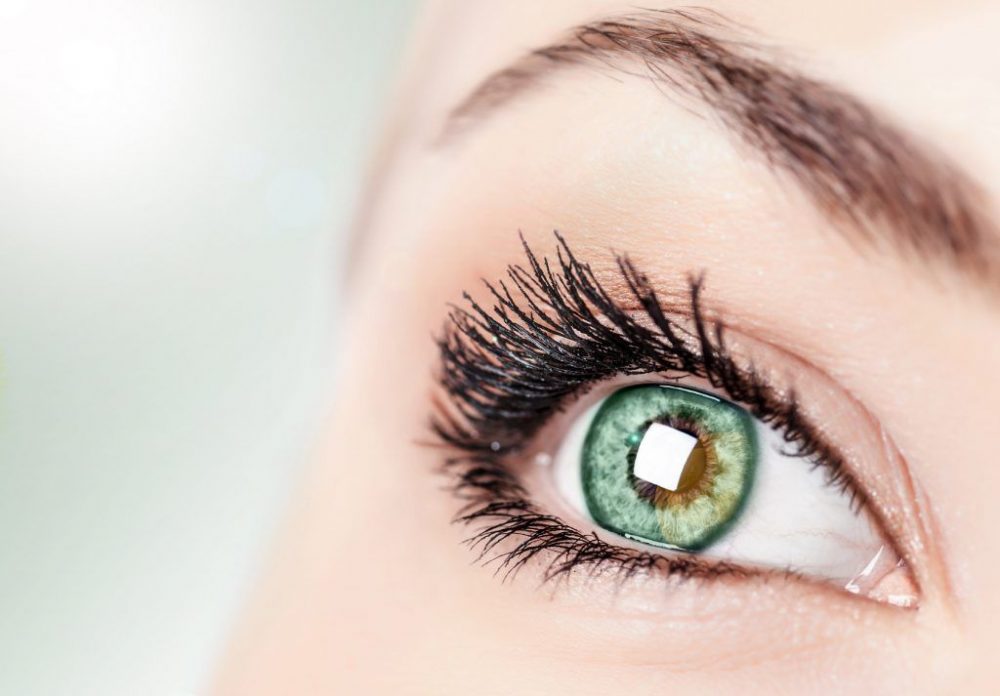

For most of us, when we wake up in the morning and open our eyes, we expect to see the things that were around us when we went to sleep. And we expect to go outside and enjoy the visual pleasures of a winter wonderland or a sunny spring day. In fact, we take our eyesight for granted. These days, that may not be the best choice. Considering the higher levels of UV light exposure we experience due to a thinning ozone layer, combined with the beating our eyes take from computer screens, tablets, smart phones and television, we should be looking to take care of our eyes now more than ever.
Environmental exposures increase the risk of eye problems such as eye strain, dry eye syndrome and blurred vision. In addition, age-related diseases of the eye such as cataracts, macular degeneration and glaucoma are more likely and often more severe if environmental risk factors are not managed. It should be clear to see that taking steps now to protect your vision will pay off with healthy eyes well into your dotage.
Taking these 5 simple steps will go a long way toward doing just that:
- Feast Your Eyes – Healthy vision starts with good nutrition. There are a whole host of vitamins, minerals, antioxidants and fatty acids necessary in your diet to maintain healthy vision. The following is a list of these vital nutrients and the foods that contain them.
- Vitamin C – antioxidant that protects eyes from free radical damage. Found in: oranges, grapefruit, papaya, strawberries, Brussels sprouts and green peppers.
- Lutein and Zeaxanthin – two of the most effective antioxidants for eye protection. Found in spinach, kale, collard greens, broccoli, and colorful fruits like grapes and kiwis.
- Vitamin A and Beta-Carotene – important for night vision. Found in: carrots, pumpkins, sweet potatoes, kale and red peppers.
- Vitamin E – in combination with Vitamin C, it works as a powerful protectant for the eye. Found in: seeds, nuts, wheat germ and the oils produced from them.
- Omega-3 Fatty Acids – act to control inflammation and support healthy function of the retina and optic nerve. Found in: cold water oily fish like salmon, sardines, herring and anchovies.
- Zinc – supports a healthy retina. Found in: oysters, turkey and other meats, eggs, peanuts and whole grains.
- Selenium – supports the protective effect of other antioxidants and thought to reduce the risk of macular degeneration. Found in: shellfish, Brazil nuts and brown rice.
It is always best to get most of your nutrition from fresh whole food sources. However, getting all you need for optimal health is often difficult these days and nutrition for the eyes is no exception. And, when it comes to eye health, a well-designed supplement like Vision Protector has been shown in research studies to be beneficial for long-term eye health.
- Eye Protection – your eyes are exposed to potential injury from airborne hazards at work, home or even in many sports activities. It is important to wear adequate eye protection anytime your work or play includes eye hazards. The most common danger to your eye is exposure to ultraviolet radiation from the sun. Polarized sunglasses that block 99% of UV rays should be regular eye wear for anyone who goes outside.
- Look Away from the Light – staring at a computer screen for hours at a time can result in eye strain, blurred vision, dry eyes, headaches and neck pain. Take steps to reduce the strain caused to your eyes by the computer:
- Use the right lens prescription
- Use an anti-glare screen or anti-glare eye wear
- Blink your eyes more often
- Look away from your computer every 10 or 15 minutes and focus on distant objects more than 10 feet away for half-a-minute or so.
- Get Your Eyes Checked – regular visits to your eye care professional are essential to preserving your eyesight long-term. Not only will this ensure that your eyes are healthy and that your lens prescription (if you need them) is correct, should there be a disease process occurring in your eyes, periodic checkups will aid in early detection – allowing the doctor to help you minimize the effect and progression of the problem.
- Quit Smoking – people who smoke have an exponentially higher risk of degenerative vision problems like: macular degeneration, cataracts and retinal/optic nerve damage.




